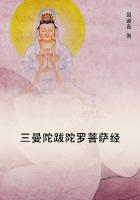Meanwhile the great argument had been begun in the jury-room, and all the points that had been meditatively speculated upon in the jury-box were now being openly discussed.
It is amazingly interesting to see how a jury will waver and speculate in a case like this--how curious and uncertain is the process by which it makes up its so-called mind. So-called truth is a nebulous thing at best; facts are capable of such curious inversion and interpretation, honest and otherwise. The jury had a strongly complicated problem before it, and it went over it and over it.
Juries reach not so much definite conclusions as verdicts, in a curious fashion and for curious reasons. Very often a jury will have concluded little so far as its individual members are concerned and yet it will have reached a verdict. The matter of time, as all lawyers know, plays a part in this. Juries, speaking of the members collectively and frequently individually, object to the amount of time it takes to decide a case. They do not enjoy sitting and deliberating over a problem unless it is tremendously fascinating.
The ramifications or the mystery of a syllogism can become a weariness and a bore. The jury-room itself may and frequently does become a dull agony.
On the other hand, no jury contemplates a disagreement with any degree of satisfaction. There is something so inherently constructive in the human mind that to leave a problem unsolved is plain misery.
It haunts the average individual like any other important task left unfinished. Men in a jury-room, like those scientifically demonstrated atoms of a crystal which scientists and philosophers love to speculate upon, like finally to arrange themselves into an orderly and artistic whole, to present a compact, intellectual front, to be whatever they have set out to be, properly and rightly--a compact, sensible jury. One sees this same instinct magnificently displayed in every other phase of nature--in the drifting of sea-wood to the Sargasso Sea, in the geometric interrelation of air-bubbles on the surface of still water, in the marvelous unreasoned architecture of so many insects and atomic forms which make up the substance and the texture of this world. It would seem as though the physical substance of life--this apparition of form which the eye detects and calls real were shot through with some vast subtlety that loves order, that is order. The atoms of our so-called being, in spite of our so-called reason--the dreams of a mood--know where to go and what to do. They represent an order, a wisdom, a willing that is not of us. They build orderly in spite of us. So the subconscious spirit of a jury. At the same time, one does not forget the strange hypnotic effect of one personality on another, the varying effects of varying types on each other, until a solution--to use the word in its purely chemical sense--is reached. In a jury-room the thought or determination of one or two or three men, if it be definite enough, is likely to pervade the whole room and conquer the reason or the opposition of the majority. One man "standing out" for the definite thought that is in him is apt to become either the triumphant leader of a pliant mass or the brutally battered target of a flaming, concentrated intellectual fire. Men despise dull opposition that is without reason. In a jury-room, of all places, a man is expected to give a reason for the faith that is in him--if one is demanded. It will not do to say, "I cannot agree."
Jurors have been known to fight. Bitter antagonisms lasting for years have been generated in these close quarters. Recalcitrant jurors have been hounded commercially in their local spheres for their unreasoned oppositions or conclusions.
After reaching the conclusion that Cowperwood unquestionably deserved some punishment, there was wrangling as to whether the verdict should be guilty on all four counts, as charged in the indictment. Since they did not understand how to differentiate between the various charges very well, they decided it should be on all four, and a recommendation to mercy added. Afterward this last was eliminated, however; either he was guilty or he was not.
The judge could see as well as they could all the extenuating circumstances--perhaps better. Why tie his hands? As a rule no attention was paid to such recommendations, anyhow, and it only made the jury look wabbly.
So, finally, at ten minutes after twelve that night, they were ready to return a verdict; and Judge Payderson, who, because of his interest in the case and the fact that he lived not so far away, had decided to wait up this long, was recalled. Steger and Cowperwood were sent for. The court-room was fully lighted. The bailiff, the clerk, and the stenographer were there. The jury filed in, and Cowperwood, with Steger at his right, took his position at the gate which gave into the railed space where prisoners always stand to hear the verdict and listen to any commentary of the judge. He was accompanied by his father, who was very nervous.
For the first time in his life he felt as though he were walking in his sleep. Was this the real Frank Cowperwood of two months before--so wealthy, so progressive, so sure? Was this only December 5th or 6th now (it was after midnight)? Why was it the jury had deliberated so long? What did it mean? Here they were now, standing and gazing solemnly before them; and here now was Judge Payderson, mounting the steps of his rostrum, his frizzled hair standing out in a strange, attractive way, his familiar bailiff rapping for order. He did not look at Cowperwood--it would not be courteous--but at the jury, who gazed at him in return. At the words of the clerk, "Gentlemen of the jury, have you agreed upon a verdict?" the foreman spoke up, "We have."
"Do you find the defendant guilty or not guilty?"
"We find the defendant guilty as charged in the indictment."















